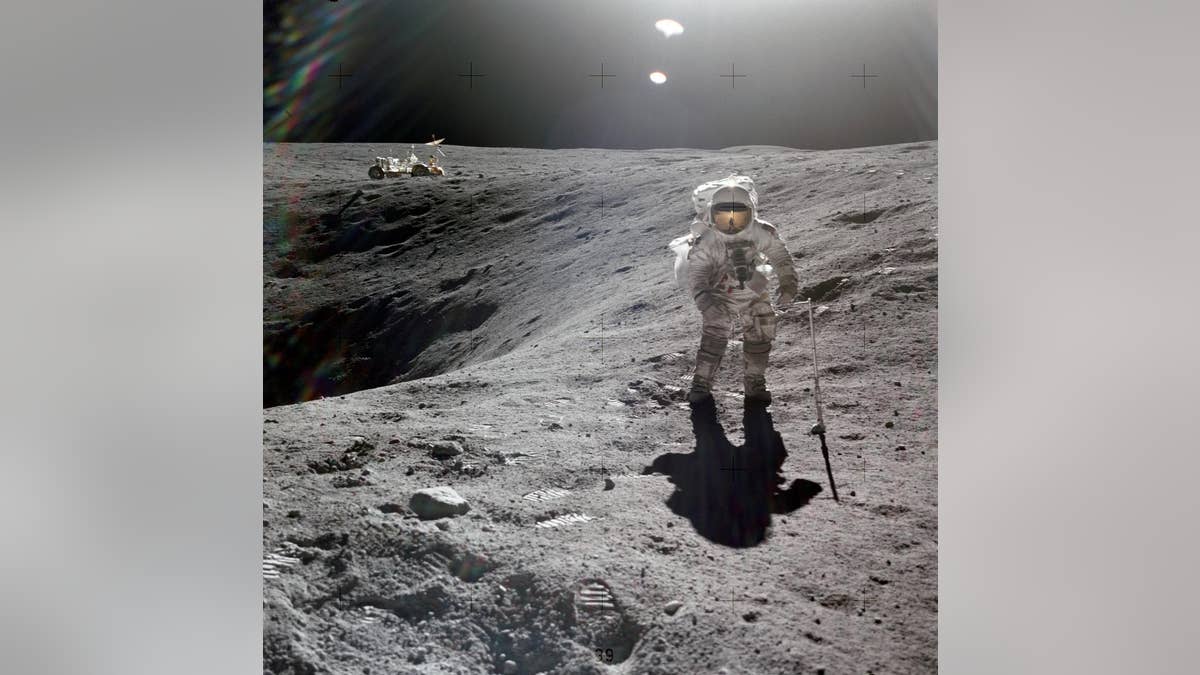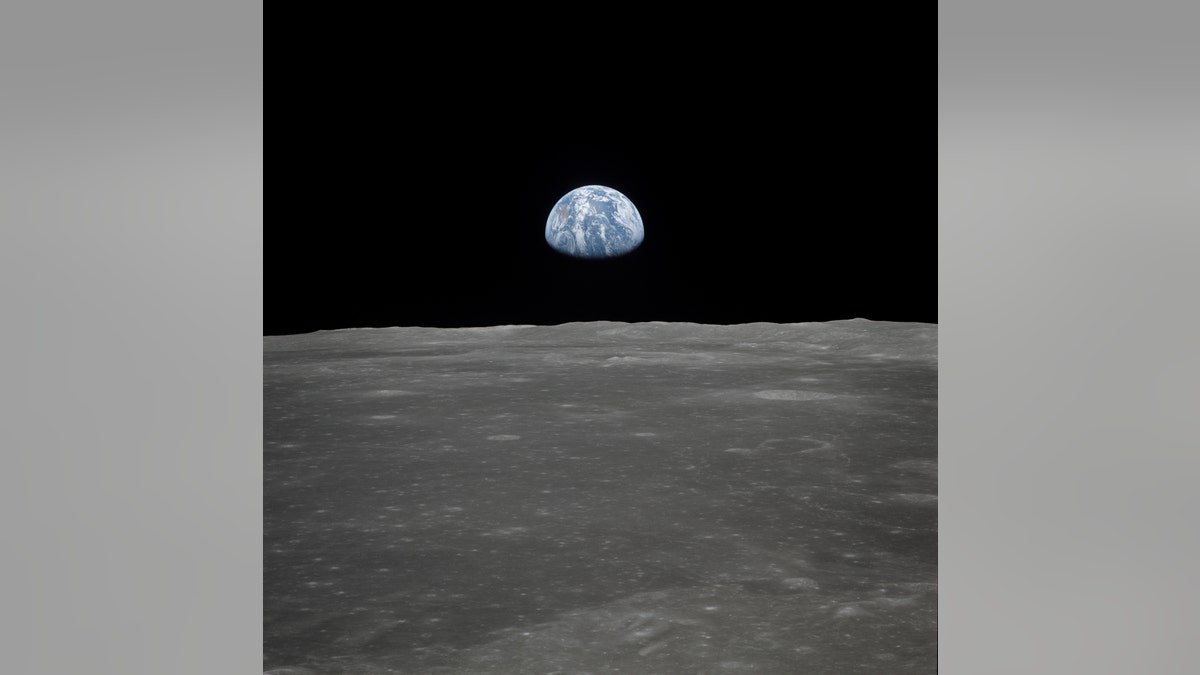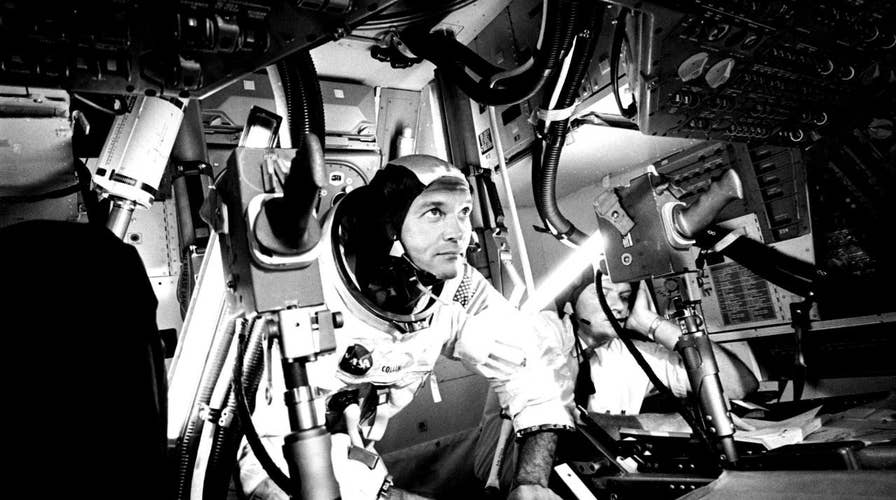Apollo 11's Michael Collins reflects on historic Moon landing: 'We were just regular astronauts'
Michael Collins reflecting on the moon landing calls himself a ‘regular astronaut’
There have been billions of people that have walked the face of the Earth throughout history, but only 12 of have ever walked on the surface of the Moon.
For the select few that have ever walked on Earth's natural satellite, one adjective gets repeated over and over — magnificent.
"I'd sum it up with wonder, awe, excitement and adventure," Apollo 16 lunar module pilot Charlie Duke said of the feeling of walking on the Moon while discussing the historic Apollo 11 mission. "You're in a place that Buzz [Aldrin] said was 'magnificent desolation.' It was the most beautiful terrain I'd ever seen."

Astronaut Charles Duke, Apollo 16 lunar module pilot, is photographed collecting lunar samples at Station No. 1 at the Descartes landing site. (NASA)
APOLLO 11 INSIDERS REMEMBER HISTORY'S MOST FAMOUS SPACE MISSION: 'WE HAD A JOB TO DO AND WE DID IT'
Duke, who was also the capsule communicator (CAPCOM) for Apollo 11, described the surface of the Moon with aplomb. "There were shades of grey and there was such a sharp contrast between the lunar surface and the blackness of space," Duke added. "I felt right at home."
Earth was just there suspended upon nothing, in the blackness of space. It was just awesome.
Along with John Young, the ninth person to walk on the Moon, Duke said that the two astronauts "never lost [their] excitement]" in the 71 hours, 2 minutes and 13 seconds they spent on the surface. "We recognized all the major landmarks that we'd studied through photos. I guess it would be like a 5-year-old at Christmas and their birthday all rolled into one. When we started to explore, we just had fun doing it."
Apollo 16 was the only NASA mission to target the “lunar highlands,” an area in the Moon’s southeast quadrant with hilly and grooved terrain, according to the space agency.
From the Moon to the Earth
Twelve men, all Americans, have been the only people to set foot on the Moon, but a far greater number of astronauts, both men and women, have seen the Earth from space. Both Duke and Apollo 11 astronaut Michael Collins have described this as simply incredible.
"The first time I saw it [the Earth], we came from the backside of the Moon and we watched Earthrise. My first thought was, 'We're a long way from home,'" Duke said, laughing. "But after that, you recognize the beauty of it — the blue, the white and the brown. Earth was just there suspended upon nothing, in the blackness of space. It was just awesome."
Collins, who did not walk on the Moon, unlike his fellow crew members Armstrong and Aldrin, nonetheless said that being so close to the Moon was "wonderful," the sight of the Earth was awe-inspiring.

This view of Earth rising over the moon's horizon was taken from the Apollo spacecraft. The lunar terrain pictured is in the area of Smyth's Sea on the nearside. Coordinates of the center of the terrain are 85 degrees east longitude and 3 degrees north latitude. (Credit: NASA)
APOLLO 11: SECRET NIXON SPEECH REVEALS WHAT WOULD HAPPEN IF ARMSTRONG AND ALDRIN COULDN'T COME BACK
"It's this tiny little thing, blue and white, with smears of rust that we call continents," Collins told Fox News. "It projected an aura of great fragility and the more you dig into it, the more you realize how fragile it is."
CLICK HERE TO GET THE FOX NEWS APP
Be sure to catch the America’s News HQ Apollo 11 50th anniversary special on Fox News on Saturday, July 20 at 12 PM EDT.
Fox News' James Rogers contributed to this story.








































